What role does culture play in child development?
Cultural offer for children evolves rapidly, as does our society. Let's put our heads together to find new ways of supporting the development of children aged 2 to 10, so that they can flourish and meet the challenges that lie ahead.
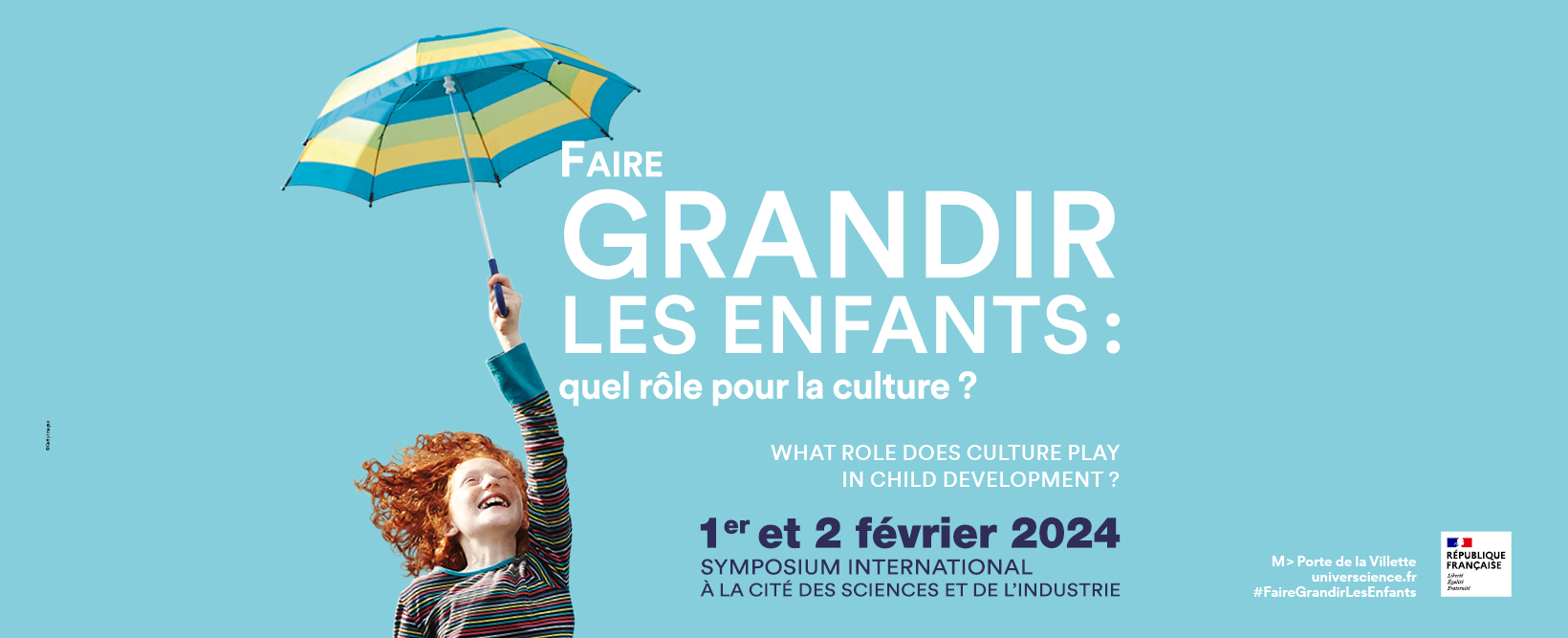
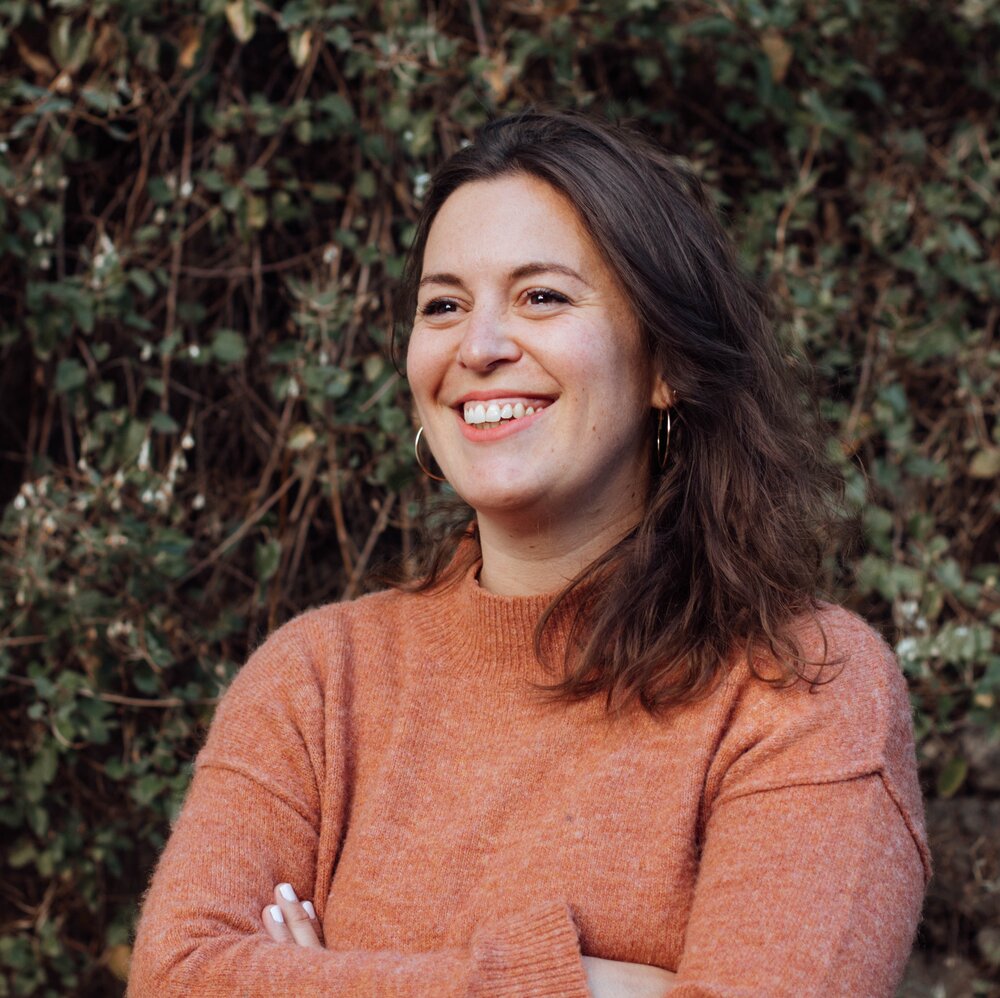
The conference will be chaired by Brune Bottero, journalist, youth science communicator and podcast author.
Between the ages of two and ten, children discover the world by experiencing it, moving around, and asking questions about it; they first explore the present and then develop a notion of time. By taking risks – the risk of falling but also sensory and emotional risks – they start to understand our world better. They are fascinated by the world of adults and its rules, and by natural phenomena. Faced with a more or less present nature, they build a relationship with the living world by observing nature, to the extent that it exists. They are constantly on the move, restricted or unrestricted depending on the places they visit, and they gradually coordinate their bodies with the spaces and life around them. Their words and their needs have been the subject of close study in recent decades, including in our own cultural spaces.The first day of the symposium will look at children from various perspectives and ask how they fit into the museums and science centres of the future.
- 9:00 AM/ Welcome coffee
- 10:00 AM / Opening, Bruno Maquart, CEO UNIVERSCIENCE
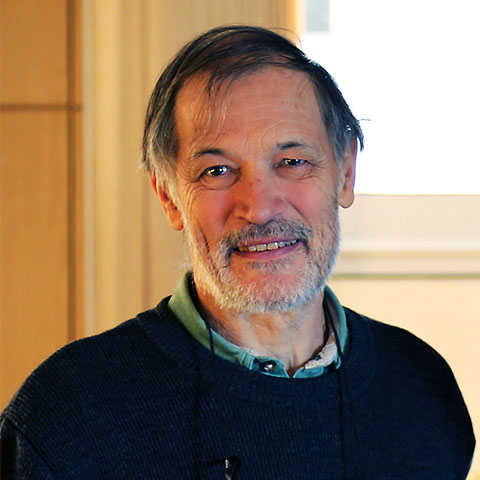
- 10:15 AM / Keynote
TAKING RISKS
Although we systematically associate risk with danger, when freely chosen, it can be a source of personal fulfilment. David Le Breton presents it as a tool to challenge established positions and the static nature of things and to open up new avenues.
By David Le Breton, Professor of Sociology at the University of Strasbourg.
David Le Breton is Professor of Sociology at the University of Strasbourg and a member of the Institut Universitaire de France.
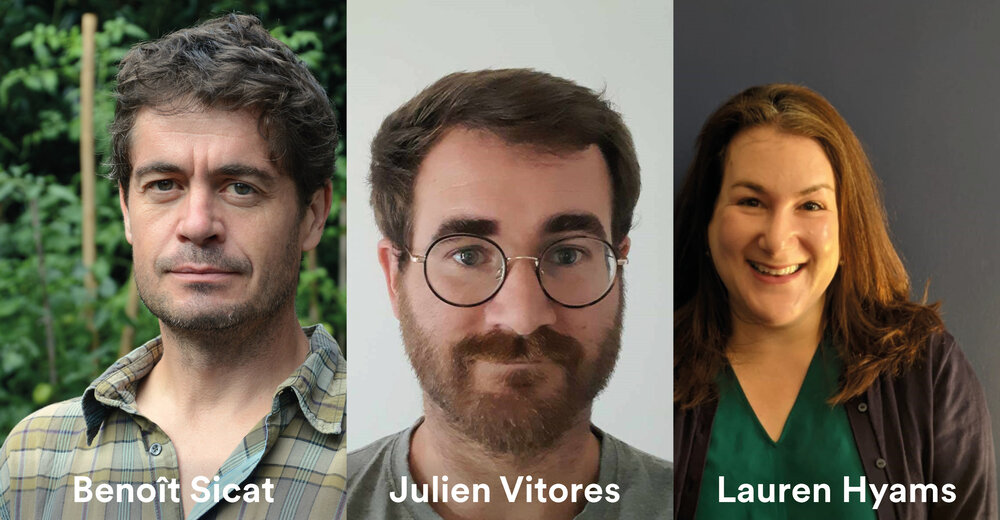
- 11:15 AM
SHOULD CHILDREN LOVE NATURE?
Discussions around the conservation of biodiversity inevitably lead to the same conclusion: children need to be brought into contact with nature to encourage them to conserve it. But does spending time outdoors really encourage us to care more about the environment? Professionals from various backgrounds suggest ways of getting children out and about to strengthen their relationship with living things.
With:
Benoît Sicat, interdisciplinary artist
Benoît Sicat’s work focuses primarily on gardens and landscapes and explores the possible interaction between very young children and adults. His immersive landscape performances are driven largely by group improvisation. He planted a micro forest for a school at the end of 2021.
Lauren Hyams, Head of Urban Nature Programme, Natural History Museum London.
Lauren is Head of Activities for the Urban Nature Programme, working to transform the Natural History Museum’s outdoor space into an exemplar of urban wildlife research, conservation and awareness. Leading a coalition of museums and wildlife organisations, the UNP will create an urban nature movement through a UK-wide learning programme for young people, families and schools.
Julien Vitores, Doctoral student in sociology at the Université Fédérale Toulouse Midi-Pyrénées and ATER at the Université Sorbonne Paris Nord; Affiliated laboratories: LASSP (EA 4175) and CESSP (UMR 8209).
Julien Vitores specialises in the socialisation of young children (aged 3-6) with nature. His work examines the social conditions conducive to certain forms of interest in nature, with a focus on the social relations (primarily class and gender) in which children are engaged.
- 1:30 PM/ Welcome coffee
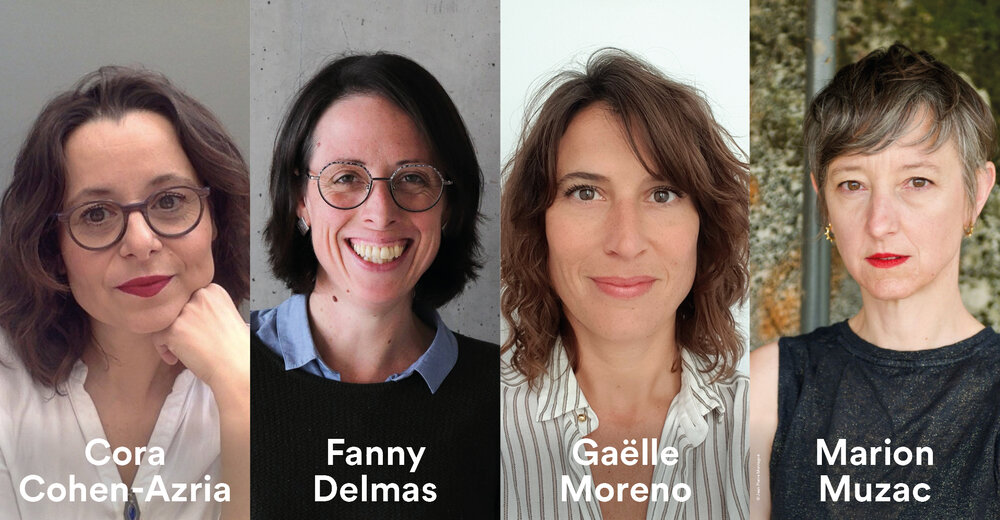
- 2:30 PM
TO MOVE IN ORDER TO FEEL, IN MUSEUMS AND ELSEWHERE
Children in museums and theatres are expected to remain almost still, silent, unobtrusive, and not to disturb the adults around them. But children grow up by moving, climbing, questioning, jumping and swinging. Are the two aspects incompatible?
With:
Cora Cohen Azria, University Professor - Education and Training Sciences, Science Didactics and Museology at the CIREL ULR 4354 Laboratory - Théodile Team.
As a member of the CIREL laboratory (Centre interuniversitaire de recherche en éducation de Lille [Lille Inter-University Centre for Educational Research]), Cora Chen-Azria studies the link between schools and museums; school and family visits to museums; and the teaching and learning of science. Her research examines the “training” of museum visitors and critically thinking citizens. As a specialist in these issues, she provides expert advice to museums and centres for scientific and technical culture to design exhibitions and outreach activities targeted at young audiences and families. She has published many articles and books on these subjects.
Fanny Delmas, Head of Artistic and Cultural Education division, Transmission and careers Department at Centre national de la Danse.
Throughout her university career in performing arts and educational science, Fanny Delmas has explored the relationship between artworks and spectators, and the ways in which art is transmitted. She was head of mediation and training at the Centre chorégraphique national de Montpellier, then dance advisor at Arcadi Ile-de-France and independent trainer before joining the CND in 2016. She co-wrote two articles with Sylvain Fabre : “Creating the conditions for a dance experience, cross-conversation on the artistic and cultural education system “Constellation”” "", published in the journal Recherches en danse in 2022, and “Analysis of an artistic and cultural education project: didactic games and institutionalization”, proceedings of the TACD congress, in 2019.
Gaëlle Moreno, Training and Professional Communication and Manager at École des loisirs.
Gaëlle Moreno works as Training and Professional Communication Manager at École des loisirs. Involved in the development of public reading and access to books for all, École des loisirs has put cultural demonstration at the centre of their actions. This is why, Gaëlle Moreno and her team offer tools for professionals, on the one hand to develop their own knowledge about books as well as children development, and on the other hand, to make demonstration geared towards young readers easier.
Marion Muzac, dancer and choreographer
Each of Marion Muzac's projects is an invitation to dance, addressed to professional dancers, but also and above all to people who don't know that they are, or can be, dancers. Just for the sake of "seeing dance emerge where we least expect it, where bodies have ways of moving that have not been shaped by the integration of practices, techniques and stylistic codes" she says. In her show Le Petit B, dedicated to the very young, she offers children a powerful sensory adventure in which they are both spectators and dancers, using their entire body.
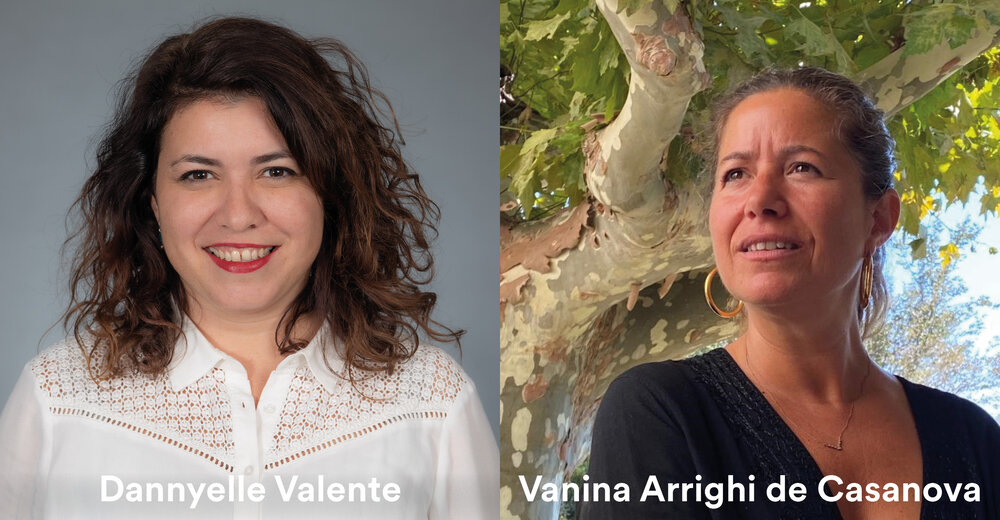
- 4 PM
PUTTING CHILDREN AT THE HEART OF WHAT WE DO
When we involve users in participatory approaches, we give them experiences that are as close as possible to their aspirations. However, is this possible with children? What place should we give them? Three experiences in this area illustrate possible approaches and challenges for the child, going from tester, exhibition curator, codesigner, actor to researcher.
With:
Vanina Arrighi de Casanova, Head of the Children's Rights Taskforce of the City of Paris
In 2019, Vanina Arrighi de Casanova, a journalist by training, joined the office of Dominique Versini, then Deputy Mayor of Paris responsible for Solidarity, Refugees and Child Protection. When, in 2020, the Mayor of Paris tasked her with leading a major political initiative on children's rights, Dominique Versini asked Vanina Arrighi de Casanova to set up the Mission Droits de l'Enfant [Children's Rights Taskforce] within the Direction des Solidarités [Department of Solidarity] of the City of Paris, which aims in particular to raise the awareness of all children living in Paris of their fundamental rights.
Dannyelle Valente, Research associate with the Laboratory of Sensory-Motor, Affective and Social Development (SMAS) at the University of Geneva and lecturer at the Development, Individual, Process, Disability and Education Research Unit (DIPHE), Université Lumière Lyon 2.
Dannyelle Valente have previously worked as R&D manager at the publishing house Les Doigts Qui Rêve. Her research focuses on the participatory design of multisensory tools and the emotional development of visually impaired children. She has worked on several participatory design and evaluation projects to develop multi-sensory tools in partnership with publishing houses, museums and schools, including the "Petits explorateurs tactiles au Muséum” [Young hands-on museum explorers] project and the "Emoti-sens" project.
Sophie Sage, Content Manager and Interpretation Producer at the Young V&A, London
Sophie Sage is looking after the on-gallery family interpretation across the museum. She previously worked on the temporary exhibition programme and has been working with family audiences for 10 years.
Chinami Sakai, Senior Producer, Informal Learning at the Young V&A, London
Chinami Sakai is managing the museum’s programme for families. She has also contributed to the development of Young V&A’s Play Gallery, providing the learning perspective as well as delivering co-creation projects for the gallery.
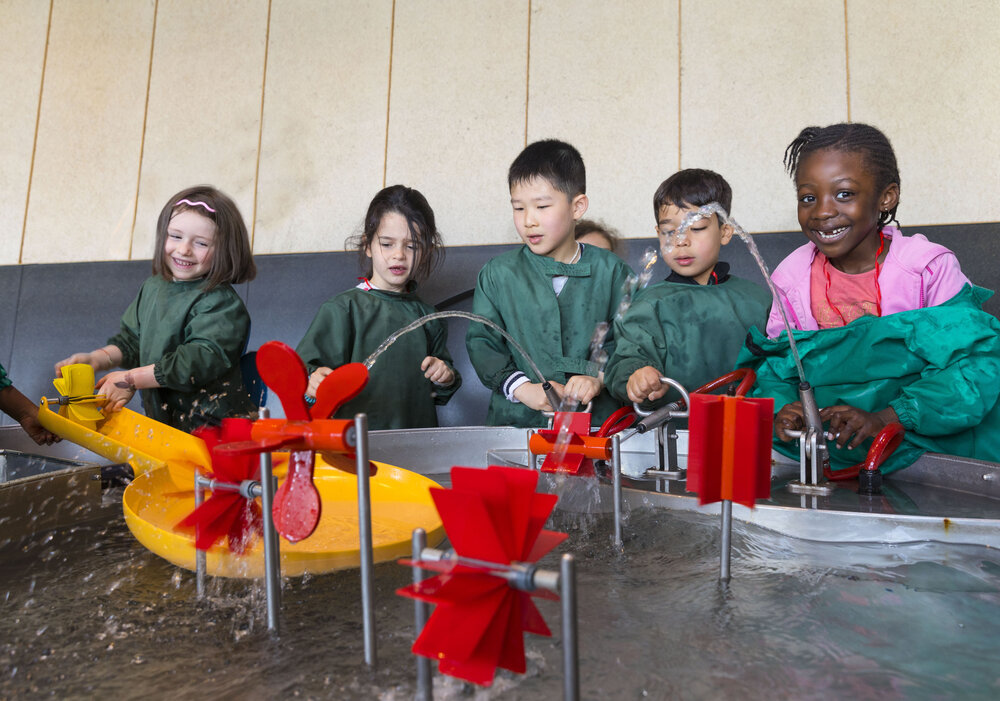
- 6-9 PM
A FUN EVENING AT THE CITÉ DES ENFANTS
An opportunity for big children to get to know each other better
The Cité des enfants, a pioneering museography project dedicated to children, celebrated its 30th anniversary last year at The Cité des sciences et de l’industrie. More than fifteen million young visitors and people tagging along have wandered through these discovery areas, which offer activities to awaken their curiosity, experiment and actively observe. Here, collaboration is the only rule and making mistakes is encouraged, in order to allow children to develop their talents.
Agenda :
6:00, 6:30 and 7:00 pm : Visit of the exhibition Metamorphoses (in French, registration at the reception)
Discussion with Universcience scientific muséology et communication teams and the publishing house, Ecole des loisirs
Cité des 5-12 :
“Express Fauna” at the demonstration area (in French)
“Silk Spinners” at the Butterfly Greenhouse at the garden area (in French and English)
Cité des 2-7 :
Show “Mr Chip’s Forest” at the demonstration area (in French)
“The Bubble show” at the I experiment area (in French)
The second day of the conference invites us to question the world views we pass on to children through the stories we tell.
Stories make up the bulk of cultural activities and services for children, told through exhibitions, plays, storytelling, workshops, meetings and books. These stories help develop their imaginations. Which stories do we choose to tell them? How do we make sure they are suited to children of different ages? Which images of the real world do we choose to show them? Do these stories and images prepare them for the challenges they will face in the future? By enriching our imaginations and stories, we can expand the horizons of our children and help them shape a new future for themselves.
- 9:30 AM/ Welcome coffee
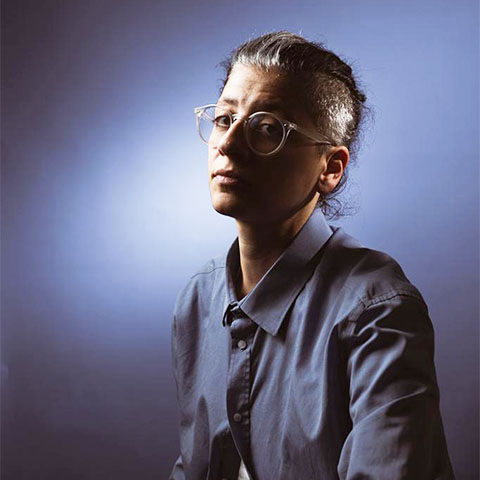
- 10 AM / Keynote
THE POWER OF STORYTELLING
Human beings developed the ability to tell stories for their own survival and development. Since we are now able to dream about everything and tell almost everything, which stories are relevant today? How should we pass them on? What stories can we tell children to help them imagine the world of tomorrow?
By Nathalie Sejean, multimedia storyteller
Nathalie Sejean is a Franco-Lebanese artist based in Lille. She crafts stories in different media, including films, books, visual works, unseen disruptions, fictional podcasts, plays, and interactive animation, to trigger the active participation of viewers, readers and listeners as they discover these stories.
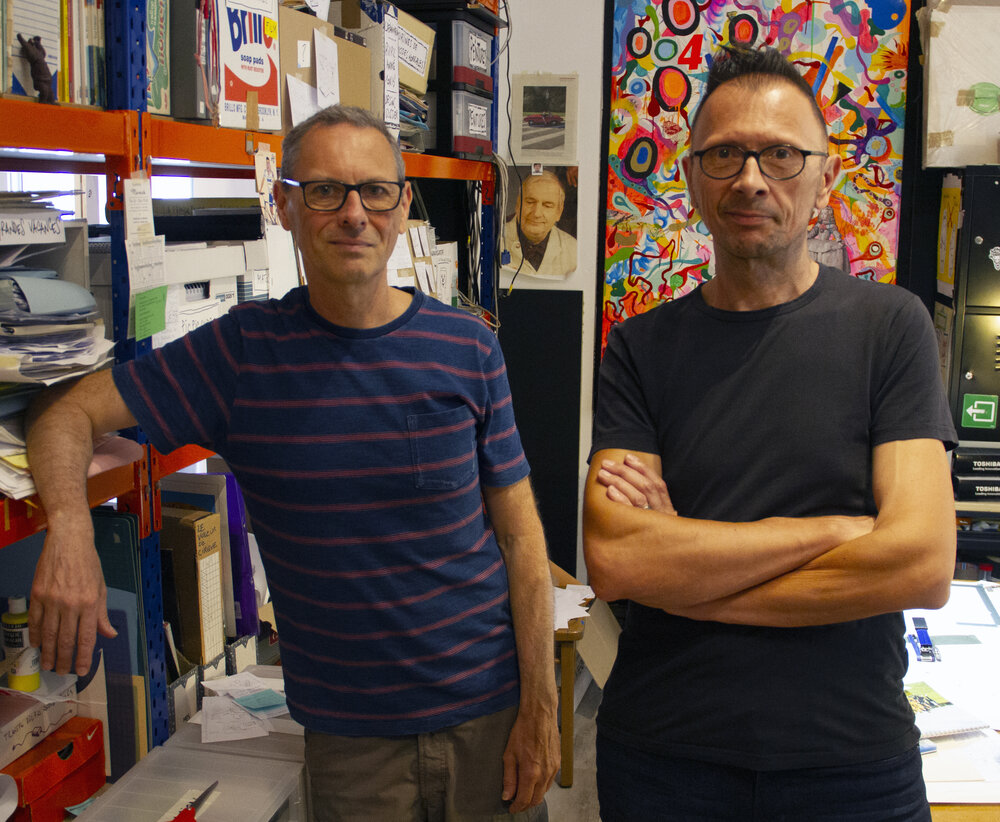
- 11 AM
IMAGINARY WORLDS
Creating imaginary worlds for children to make their own through play and dreams is more complex than it seems. Creators and specialists of invented worlds share the secrets of their trade and explain how they engage very young children in their magical worlds and create cultural codes for future adults.
With:
Vincent Patar & Stéphane Aubier, Cartoonists
Stéphane Aubier and Vincent Patar graduated in 1991 with a ‘Major Distinction’ in Animated Film from the Ecole Nationale Supérieure des Arts Visuels de la Cambre in Brussels. They went on to make three short 2D films featuring characters with very different personalities: "pic pic le cochon magik" (a superhero pig) and "André le mauvais cheval" (an anarchist horse). In 2002, they made A Town Called Panic, a short film and later a feature-length film officially selected out of competition at the 2009 Cannes Film Festival and nominated in the Best Foreign Film category at the 2010 Césars. In 2012, Ernest and Célestine, based on books by Gabriele Vincent, which they co-directed with Benjamin Renner, won a César for Best Animated Film in 2013.
In 2013, Cowboy and Indian returned for a TV special of A Town Called Panic - The Christmas Log. In 2016 they made the stop motion film, Back to School, and then The Noise of Grey, and in 2019 The County Fair.
Magali Le Huche, Author and Illustrator
Magali Le Huche trained at the Arts Décoratifs de Strasbourg, after graduating from the Faculty of Fine Arts and the Atelier de Sèvres, where she follow the teaching of Claude Lapointe. Along with other former students of the school, she founded the 'Ô Mazette' association. Through this association, she organises exhibitions and workshops for children.
Edwige Chirouter, Professor of philosophy and education sciences
Edwige Chirouter is a university professor of philosophy and educational science. She holds the UNESCO/University of Nantes Chair in "Philosophy practices with children: an educational basis for intercultural dialogue and social transformation". She is the coordinator of the Erasmus Plus project for international cooperation PHILéACT.
Julia Thévenot, children's Author and Publisher.
At the age of six, Julia Thévenot swore she would be a writer. Unwilling to renege on this magical promise, because you never know what might happen, she decided to devote herself to children's literature. So she became an editor (with Sarbacane, since 2017) and then an author (Bordeterre and Lettre à toi qui m'aimes, published by Sarbacane in 2020 and 2021, Le Trésor, with Thierry Magnier in 2021, and Mille Pertuis with Gallimard in 2023). She lives with her husband and son, working on other people's novels by day and her own by night.
- 1:30 PM/ Welcome coffee
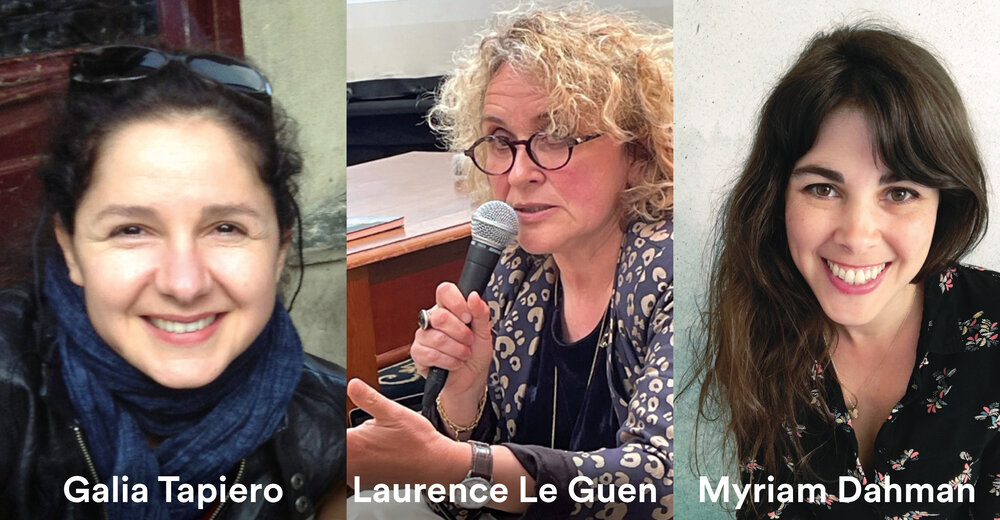
- 2 PM
WHAT IMAGES TO USE IN ORDER TO EXPLAIN THE WORLD TO CHILDREN?
We are sometimes called upon to illustrate children’s books on biology, astronomy and mathematics, to put geopolitical, ethological and historical information into images, or to provide a visual explanation of violence, misery or death. Showing reality to young people can be challenging. Do photography and illustration convey the same things to children? How do children interpret these different media? What role does the imagination play in how they understand reality?
With:
Myriam Dahman, children's author and project manager for development awareness and education at Agence Française de Développement
Belgian-Moroccan author Myriam Dahman is a writer for young people and also works to raise awareness of development and environmental issues. She is a regular contributor to children's philosophy magazine Philéas et Autobule.
Laurence Le Guen, Doctor in French literature, associate researcher at the Cellam laboratory of the Université de Rennes 2 and the University of Leuven, and literature teacher in Loire-Atlantique.
Laurence Le Guen is a doctor of French literature, and associate researcher at the Cellam laboratory of the Université de Rennes 2 and the University of Leuven. She coordinates a website on children’s photo literature called Miniphlit | Photolittérature pour la jeunesse (hypotheses.org).
Galia Tapiero, anthropologist, editorial and artistic director, publisher
Children's author Galia Tapiero has always had a passion for dictionaries, encyclopaedias, documentaries, objects that tell stories, and journeys that inspire. In 2007, she embarked on a new adventure when she set up Kilowatt éditions, a publishing house that uses a complementary text-illustration approach to help children as they grow and encourages them to ask questions to better understand the world they live in.
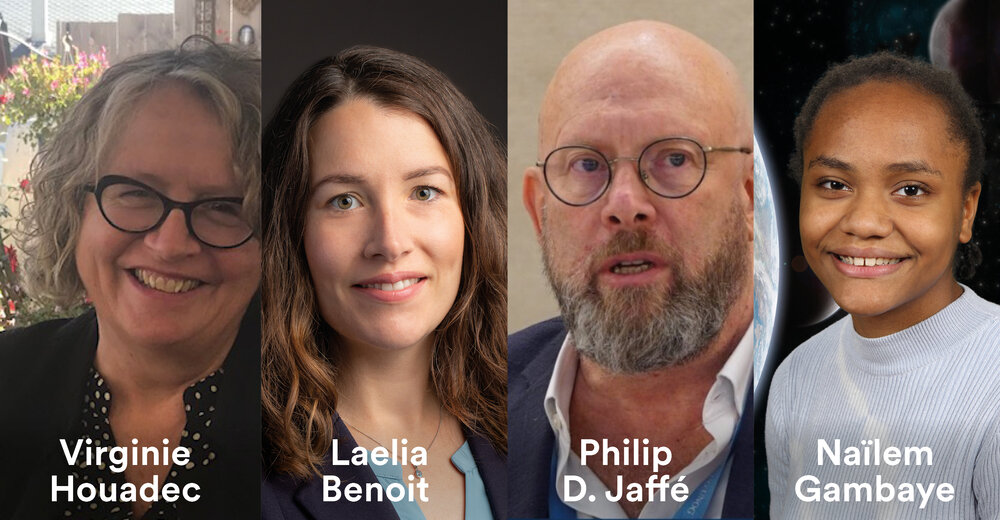
- 3:30 PM
WHAT CHALLENGES WILL CHILDREN FACE IN THE FUTURE?
The fight against discrimination, the impact of screens on health, the power of social networks, climate change, the importance of community... Children will face multiple challenges, both now and in the future. Three childhood specialists set out their priorities and suggest new avenues for research and action.
With:
Virginie Houadec, former national education inspector and sociologist at Artémisia, ARPEGE network, Toulouse Jean Jaurès University
Virginie Houadec coordinated the "50 activities for equality between girls and boys at school". Her work focuses on gender and love models in children's literature. She is currently working on "how to read the classics and heritage works to today's children".
Laelia Benoît, Clinical Fellow in Child Psychiatry and Associate Researcher at the Yale Child Study Center and at Inserm, CESP, Centre de Recherche en Epidémiologie et Santé des Populations.
Laelia Benoit is a clinical fellow in child and adolescent psychiatry and favours citizen and participatory research approaches involving adolescents, their parents, professionals, and family support groups. Her most recent project assesses the impact of climate change on the mental health of children and adolescents.
Philipp Jaffé, Professor at the Center for Children's Rights Studies (CIDE), a United Nations Rapporteur on the Rights of the Child; specialist in children's participation in judicial proceedings and civil and penal judicial cases.
Philip D. Jaffé is a professor at the University of Geneva. He co-founded the Interfaculty Centre for Children's Rights and directed it from 2008 to 2019. In 2018 in New York, he was elected member of the United Nations Committee on the Rights of the Child and re-elected in 2022. Trained in Switzerland and the United States as a clinical and forensic psychologist, he still works as a psychotherapist and court expert. In addition to the traditional tasks required of a top-level university - teaching, research, "publish or perish" - his academic vision has always been to serve civil society as a practicing scientist.
Naïlem Gambaye, citizen of Paris, speaker at COP 21 and co-editor of the Paris Charter on the Rights of the Child
- 17H / Closing
With:
Michèle Antoine, director of the exhibitions, Universcience.
in partnership with



